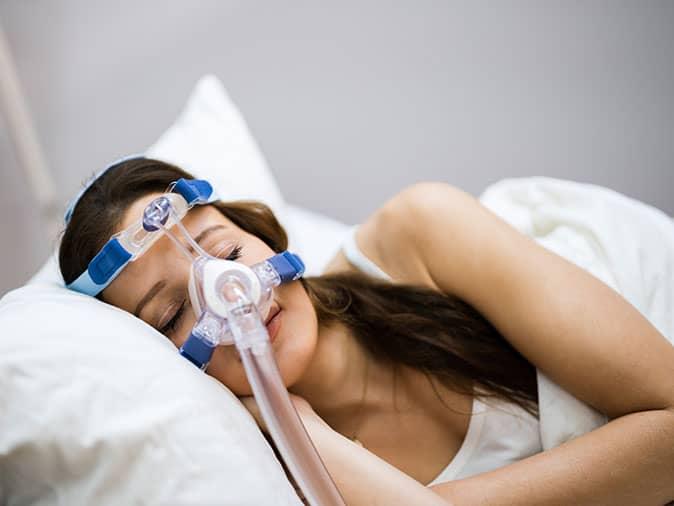Table of Contents
ToggleAre you waking up feeling more tired than when you went to bed? Do you struggle with frequent snoring or gasping for air during the night? If so, you might be one of the millions affected by sleep apnea. This common yet often overlooked condition can take a toll on your health and overall quality of life. But what if we told you that simple lifestyle changes could help combat this disruptive disorder? In this post, we’ll explore practical tips and insights into how adjusting your daily habits can lead to better sleep and improved well-being. Get ready to reclaim those peaceful nights!
What is Sleep Apnea and How Does it Affect Your Health?
Sleep apnea is a serious sleep disorder where breathing repeatedly stops and starts during the night. It can lead to fragmented sleep, leaving individuals feeling exhausted no matter how long they spend in bed.
There are different types of sleep apnea, with obstructive sleep apnea being the most common. This occurs when throat muscles relax excessively while sleeping, blocking airways. Central sleep apnea, on the other hand, happens when your brain fails to send proper signals to control breathing.
Beyond just fatigue, untreated sleep apnea can have significant health implications. It increases the risk for conditions such as high blood pressure, heart disease, and diabetes. Additionally, it may contribute to mood disorders like anxiety and depression due to chronic lack of restorative rest.
Understanding this condition is key in taking action toward effective treatment options available today.
Common Symptoms of Sleep Apnea
Sleep apnea can manifest in various ways, often going unnoticed until it significantly impacts daily life. One of the most common symptoms is loud snoring, which may be accompanied by gasping or choking sounds during sleep.
People with sleep apnea frequently experience excessive daytime sleepiness. This overwhelming fatigue can lead to difficulties concentrating and memory issues.
Another telltale sign is restless nights marked by frequent awakenings. Many individuals report feeling as if they haven’t slept at all after a full night’s rest.
Morning headaches are also prevalent among those affected. These headaches can linger throughout the day, contributing to a sense of overall malaise.
Mood swings and irritability often accompany the disorder as well. The interplay between poor sleep quality and emotional health creates a challenging cycle that can affect relationships and work performance.
The Link Between Lifestyle and Sleep Apnea
Lifestyle choices play a significant role in the severity and management of sleep apnea. Factors such as weight, diet, exercise, and habits can greatly influence how well you breathe while sleeping.
Obesity is one of the leading contributors to this condition. Extra weight around the neck can obstruct airflow during sleep. Maintaining a healthy weight through balanced nutrition and regular physical activity is essential for those at risk.
Additionally, smoking and excessive alcohol consumption have been linked to increased airway inflammation and relaxation of throat muscles. Reducing these habits can significantly improve nighttime breathing.
Even stress levels matter—high stress can lead to poor sleep patterns that exacerbate symptoms. Adopting mindfulness techniques or relaxation exercises may promote better rest.
Making mindful lifestyle changes isn’t just beneficial; it’s crucial for managing sleep apnea effectively. Each small adjustment contributes towards a more peaceful night’s sleep.
Practical Tips for Better Sleep:
Creating a consistent bedtime routine helps signal to your body that it’s time to wind down. Aim for the same sleep and wake times every day, even on weekends. This consistency can significantly improve the quality of your sleep.
Reducing alcohol and caffeine intake is essential. Both substances can disrupt your natural sleep cycle. Try swapping evening cocktails or caffeinated drinks for herbal tea or water instead.
Regular exercise plays a crucial role in combating sleep apnea. Aim for at least 30 minutes of moderate activity most days. Just don’t work out too close to bedtime; it may keep you awake.
Focus on crafting a comfortable sleeping environment. Ensure your bedroom is cool, dark, and quiet. Invest in good-quality pillows and mattresses that support restful sleep without interruptions.
A. Establish a Consistent Bedtime Routine
Establishing a consistent bedtime routine can significantly improve your sleep quality, especially for those dealing with sleep apnea. The body thrives on rhythm and predictability. When you go to bed at the same time each night, it helps regulate your internal clock.
Start by winding down an hour before bed. Engage in relaxing activities like reading or taking a warm bath. These rituals signal to your brain that it’s time to prepare for rest.
Consider limiting screen time during this period too; blue light from devices can interfere with melatonin production, making it harder to fall asleep. Instead of scrolling through social media, opt for soothing music or gentle stretches.
Consistency is key—try to stick with your routine even on weekends. This will help reinforce healthy sleeping patterns over time, paving the way for deeper and more restorative sleep every night.
B. Reduce Alcohol and Caffeine Intake
Reducing alcohol and caffeine intake can significantly enhance your sleep quality. Both substances disrupt the natural sleep cycle, leading to fragmented rest.
Alcohol may seem like a sedative at first. However, it can lead to increased awakenings during the night. This disruption is particularly problematic for those with sleep apnea.
Caffeine, on the other hand, is a stimulant that keeps you alert long after consumption. Drinking coffee or energy drinks in the afternoon can make it hard to wind down at bedtime.
Consider swapping out evening cocktails for herbal teas or water. This simple change can help create an environment more conducive to restful sleep.
Pay attention to how much caffeine you consume throughout the day as well. Cutting back gradually allows your body to adjust without withdrawal symptoms interfering with your daily routine.
C. Exercise Regularly
Regular exercise plays a crucial role in managing sleep apnea. Engaging in physical activity helps strengthen your airway muscles, reducing the likelihood of obstructions during sleep.
Even moderate workouts can enhance overall respiratory health. Activities like walking, biking, or swimming improve lung capacity and circulation, contributing to better oxygen flow while you rest.
Consistency is key here. Aim for at least 150 minutes of aerobic activity each week. This could be broken down into manageable sessions throughout the week.
Additionally, strength training exercises can also benefit individuals with sleep apnea by promoting weight loss and improving body composition. A healthier weight often translates to reduced symptoms.
Remember that even simple movements—like stretching or yoga—can help relieve stress and promote relaxation as bedtime approaches. So find activities you enjoy and make them part of your routine; it’s a step towards better nights ahead!
D. Create a Comfortable Sleeping Environment
Creating a comfortable sleeping environment is essential for combating sleep apnea. Start with your mattress and pillows. Ensure they provide the right support for your body, aligning your spine and keeping you comfortable throughout the night.
Lighting plays a crucial role as well. Opt for blackout curtains to limit outside light disturbances. Dimming the lights an hour before bed can signal to your body that it’s time to wind down.
Temperature matters too; maintaining a cool room, ideally between 60-67 degrees Fahrenheit, promotes better sleep quality. Consider using fans or air conditioning if necessary.
Minimize noise disruptions by using white noise machines or earplugs. Even soft sounds can interrupt deep sleep stages critical for recovery from sleep apnea episodes. A peaceful atmosphere encourages relaxation and deeper rest each night.
Incorporating Healthy Eating Habits to Improve Sleep Apnea:
A balanced diet plays a crucial role in managing sleep apnea. Incorporating nutrient-rich foods can significantly enhance your overall health and quality of sleep.
Focus on fruits and vegetables. Leafy greens, berries, and citrus fruits are packed with vitamins that help reduce inflammation. This may alleviate some symptoms associated with sleep apnea.
Lean proteins like chicken, fish, and legumes support muscle health without the heaviness of fatty meats. They can also stabilize blood sugar levels throughout the night.
Healthy fats from sources such as avocados, nuts, and olive oil contribute to heart health while promoting better sleep patterns. These fats can help keep you satiated without causing drowsiness.
Don’t forget about hydration! Drinking enough water is essential for maintaining energy levels during the day and preventing fatigue at night.
Being mindful of portion sizes helps too; overeating can lead to discomfort while trying to rest.
A. Foods
Eating the right foods can have a significant impact on your sleep quality and overall health. When it comes to managing sleep apnea, certain dietary choices may help alleviate some symptoms.
Focus on incorporating whole foods into your meals. Fruits, vegetables, lean proteins, and whole grains are packed with nutrients that support better sleep patterns. Foods rich in magnesium, like spinach and almonds, can promote relaxation. Omega-3 fatty acids found in fish such as salmon and sardines also contribute to better respiratory function during sleep.
It’s wise to limit processed foods high in sugar or refined carbohydrates. These can lead to weight gain—a key factor when it comes to exacerbating sleep apnea conditions.
Herbs like chamomile or valerian root make great additions too; they’re known for their calming effects which can aid in achieving deeper restfulness at night.
By making informed food choices alongside other lifestyle adjustments discussed earlier, you set yourself up for improved sleep quality over time. Prioritize nourishing your body properly; every bite counts toward combating those disruptive nighttime awakenings associated with Sleep Apnea Treatments in Maricopa.




